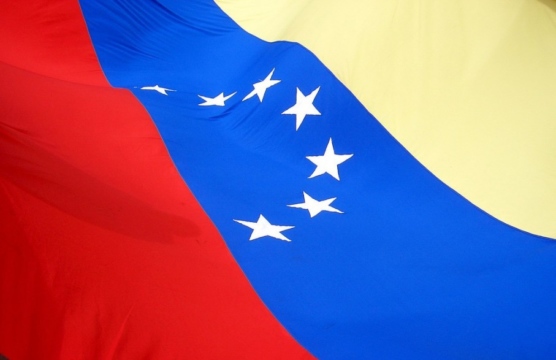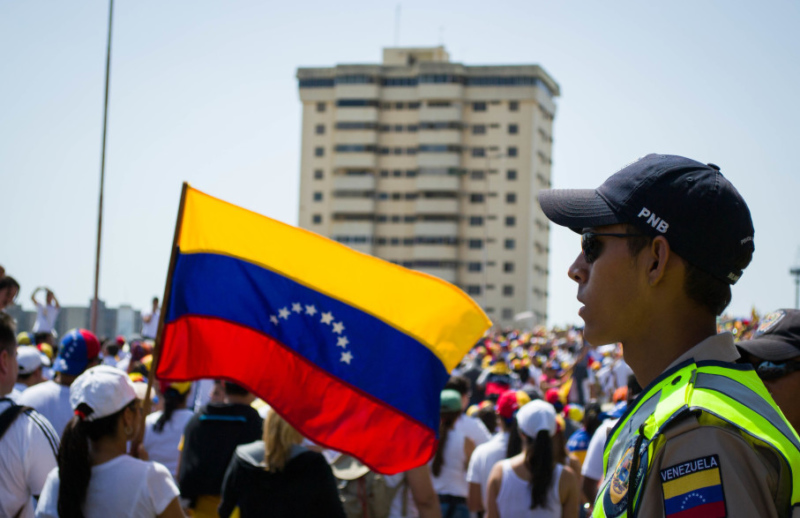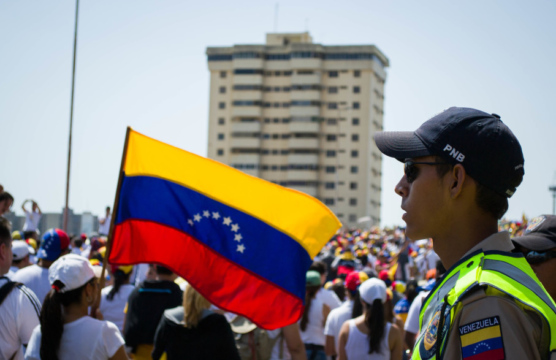
Falling Oil Prices Push Venezuela, Maduro Closer to the Edge
With crude oil prices down 25 percent since June and holding at roughly $86 a barrel on Tuesday, Venezuela is getting nervous.
A Daily Publication of The Dialogue
Q: Deadly protests, the largest since President Nicolás Maduro's election last year, have wracked Venezuela in recent weeks. The demonstrations were punctuated on Feb. 18 by the arrest of opposition leader Leopoldo López, who had been organizing the protests. Why did these protests erupt now, and why did they turn deadly this time? Does the situation pose a threat to Maduro's government? How will López's jailing affect the opposition?
A: Michael Shifter, president of the Inter-American Dialogue: "The country is coming apart at different levels. The economic crisis has deepened, with widespread shortages of basic goods and soaring inflation, the highest in the world. Crime is out of control. At least one faction of the opposition decided that, since the situation was becoming intolerable, this was the right moment to go to the streets and join with student groups that had also become increasingly frustrated and decided to demonstrate. Protests this time turned deadly because of the violent actions taken by gangs, or colectivos, associated with the government and encouraged by president Maduro. The arrest of opposition leader Leopoldo López creates a real problem for the government. If the government lets López go it will be seen as weak, and that could embolden the opposition. On the other hand, keeping him in jail insures negative international attention and gives the opposition a focus for its political campaign. The protests will probably have their ups and downs--they are difficult to sustain in current circumstances--but the gravity of economic conditions means they are likely to continue at some level. Unfortunately there are few signs that the Maduro government is capable of providing effective remedies for Venezuela's economic ills and relieving the distress. At this point, the main threat to the government probably comes more from within the Chávez coalition than the opposition. A number of struggles are going on at the same time. There are fundamental questions about the nature of splits within the armed forces, for example."
A: Peter Winn, professor of history at Tufts University: "There is an eerie sense of déjà vu in Venezuela. The escalation of violence in the streets by the opposition and the repressive response of the chavista government of Nicolás Maduro is reminiscent of the events leading up to the 2002 coup attempt that Washington backed, but which ended in consolidating Chávez's power and discrediting the opposition. Maduro's heavy-handed response to the protests is unfortunate and his arrest of Leopoldo López will only inflame further an already polarized politics, but the opposition also bears a share of responsibility for the escalation of tensions, and seems to be seeking martyrs as a way of destabilizing the Maduro government and provoking a military coup or some other form of regime change. Venezuela is deeply divided socially and politically and either side can fill the streets with demonstrators, especially in a context of economic downturn. Apart from the specifics of the Venezuelan case, recent events there raise the more general issue of what might be called 'Praetorian democracy'--where the party that loses an election tries to overturn its result in the streets, instead of waiting for the next election. One may or may not like Maduro, but he was elected president for a six-year term less than a year ago, with a popular recall referendum possible after three years. The cause of democracy would be best served by the Venezuelan opposition waiting until the next elections--and by the U.S. government not intervening overtly or covertly to promote a regime change."
A: David Smilde, senior fellow at the Washington Office on Latin America: "Like any protest wave, the sources are multiple. The basic motor of these protests has been students, protesting against the criminalization of protest and in favor of freedom of expression. The movement was latched on to and fueled by radical elements of the opposition who were not in agreement with their coalition's more moderate line aimed at growing the opposition coalition and negotiating with the government. Leopoldo López and others pushed forward with street protests seeking Maduro's resignation. In a couple of the protests, larger swaths of the opposition base have hit the streets to raise their voices as well. Protests in Venezuela frequently involve violence. Protestors themselves engage in (usually non-lethal) violence. The National Guard, which works to control the protests, has inconsistent professional standards. Mix that in with pro-government but semi-autonomous armed collectives, and it is a perfect recipe for violence. I doubt it was ordered from the top, but suggestions made by Maduro and Chavista governors about the defense of the revolution can easily be interpreted by followers as a green light for violence. The government could control it by sending crystal-clear messages to its followers and making sure that security forces work protests without lethal weaponry. The protests seem to be dying down and are focusing on 'guarimba' tactics in which small groups of people block off streets to disrupt daily life. They likely will not end as long as the government and government supporters continue to repress them. At the present the protest movement is really leading the actions of opposition politicians rather than the other way around.
With crude oil prices down 25 percent since June and holding at roughly $86 a barrel on Tuesday, Venezuela is getting nervous.
Can the government led by Nicolas Maduro survive the wave of street protests that have spread throughout Venezuela over the past two weeks?
Events in the Ukraine have lifted the morale of anti-government protestors in Venezuela and elevated their expectations.
 María Alejandra Mora / CC BY-SA 3.0
María Alejandra Mora / CC BY-SA 3.0
